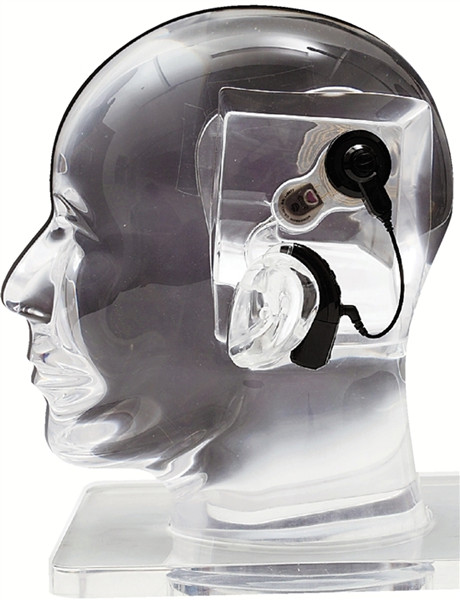Father and son from Wenzhou help 8,000 people regain hearing
Things didn't start well, Li Chu recalled. The pair endured huge stress levels as their huge investment in the company led initially only to sporadic progress and endless technical problems.
But finally, after five years of development, an investment of 190 million yuan ($28.41 million) and hundreds of trials, Nurotron received certification for its artificial cochlear devices from the China Food and Drug Administration.
Chu and Fangping's persistence has brought enormous benefits to patients in China. A single Nurotron cochlear implant system is priced at just 78,000 yuan, forcing the company's international competitors to drop their prices from 250,000 yuan to 150,000 yuan.
In 2016, the product was included in Zhejiang's public health insurance policy, which means that patients now only need to pay 18,500 yuan, with the rest of the cost being covered by the insurance.
"The first user of our product was a veteran," Li Chu said. "When he said he could hear the sound, my father and I were moved to tears."
The pair have many photos of children with hearing impairments on their phones and each photo has its touching story. "The moments when these children regain their hearing always makes us excited and moved," Chu sighed.
Chu is now the general manager of the company, and his more cerebral approach to management sometimes leads to disagreements with his father. "My father is ambitious and courageous, and we have divergences in management and policy making from time to time," Li Chu explained. "However, I am learning to analyze problems from his perspective."
In Chu's opinion, the rapidly changing market requires him to keep calm so that he can make the right decision at the correct moment to ensure his company stays ahead of the curve. He is applying new management practices he learned during his studies abroad to make Nurotron more efficient.
One major priority is accelerating the recruitment of talented researchers. In addition to top scientists like Zeng and Fu, Li Chu also seeks help from experts in neural electronics, acoustics and neuromedicine. He and his team have explored markets in more than 20 countries and regions around the world such as India, Columbia and Spain.
Nurotron expects to manufacture 4,000 artificial cochlear implant systems this year, with its sales possibly exceeding 200 million yuan.
The cochlear implant system is just the first step of Nurotron's exploration into neural electronics, according to Chu. He said the company is working on the development of an artificial retina system and systems to treat paralysis.

A model of the cochlear implant system developed by Nurotron. [Photo/zjol.com.cn]

 Print
Print Mail
Mail
 20 Cultural Symbols
20 Cultural Symbols Why Zhejiang
Why Zhejiang Experiencing high-tech products at WIC
Experiencing high-tech products at WIC Zhejiang Release
Zhejiang Release Zhejiang News
Zhejiang News